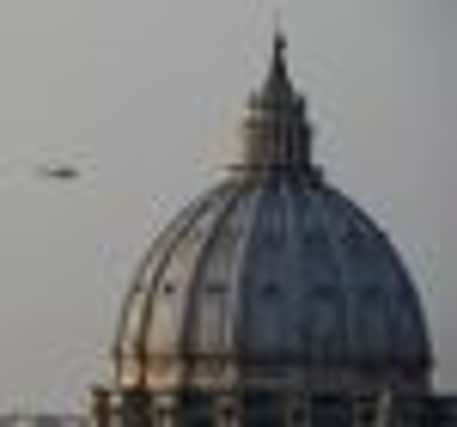John Haldane: Progressive on poor, stout on sexual ethics


The assumption was that it would take some time for the various groupings: Italian/non-Italian; European/non-European; Northern/Southern, Western/Eastern hemispheres to assess the relative scale of support for each, and to order and re-order their priorities.
In fact, however, many elector cardinals had been thinking hard about the matter and communicating with one another since 28 February when Pope Benedict announced his intention to abdicate. Watching a live feed from the Vatican, I was reminded of the previous Papal election in April 2005 when, again, we were caught unexpected by an early decision. I was up at San Giovanni in Laterano, the cathedral church of the Bishop of Rome, and ran the three miles down towards St Peter’s, arriving, like so many others, hot but happy to be there before the new pope emerged onto the balcony.
Advertisement
Hide AdAdvertisement
Hide AdThe mood then was one of inevitable change after the long pontificate of John Paul II, and again yesterday the sense was of a new beginning after the troubled times of Benedict. An early decision was thought to favour an Italian, and when I saw the smoke billow out unmistakably white I assumed the cardinals had chosen either Angelo Scola, Archbishop of Milan, or Gianfranco Ravasi who holds several prominent positions in the Vatican.
In the event, however, voting for Jorge Bergoglio, Archbishop of Buenos Aires, the electors chose to create the first ever “new-world” pontiff. Who is he, why was he chosen, and what does this mean?
Cardinal Bergoglio is an interesting figure and hard to place within the favoured framework of “conservatives versus liberals” That is, in any case, an ill-conceived opposition since it imports political or cultural categories into a religious context where they really do not fit. But it is especially ill-suited to Bergoglio, as from one perspective he appears to conform to the “progressive” profile, being a strong advocate of economic justice and compassion for the poor”; but viewed from another he appears a stout defender of traditional Catholic teachings on sexual ethics and beginning and end-of-life issues.
He is a Jesuit, a member of the Society of Jesus founded in the mid-16th century by Ignatius Loyola to lead the counter-reformation, and subsequently seen as constituting the Catholic avant-garde, or in modern military parlance “God’s marines”. Jesuit training is long and rigorous. As a religious leader, his emphasis is pastoral and he is evidently a spiritual and humble figure. His choice of “Francis” as his papal name may refer either to Francis of Assisi, the great medieval advocate of Christ-like holy poverty, or to Francis Xavier, co-founder of the Jesuits and a missionary to Asia, or quite likely to both of these saints.
Having said that his election early in the Conclave is a surprise, it needs to be added first that it has been reported he was a close second to Cardinal Ratzinger in the 2005 election. Second, in saying that he is the first “new-world” Pope, it has to be added that he is also a bridge figure to Europe and more precisely to Italy since his father was an Italian immigrant to Buenos Aires and he is a member of several Vatican “congregations” or departments that have brought him to Rome many times.
Having held the Papacy for most of its history, and watched it go first to a Pole and then to a German, the Italians wanted it back. But they had the problem that much of the recent trouble suffered by the Catholic Church is seen to have arisen, or at least not to have been properly managed, within the Vatican which they dominate.
Another non-Italian European was always unlikely, in part because Western Europe is seen to be the site of greatest secularisation. A north-American would have been unpalatable to Europeans who dislike the USA’s global power. It was too early for an African or Asian, and so it fell to an Italo-South American.
What will the papacy of Pope Francis I be like? He knows he needs to get a grip on the internal governance of the Church and do so quickly. He also knows that the Church needs to get back to the work for which it was founded: preaching the Gospel of Jesus Christ. He is unlikely to see much to be gained from trying to compromise traditional moral teachings but he will present them in a spirit of care and generosity rather than as an ethical cold warrior.
Advertisement
Hide AdAdvertisement
Hide AdOne last thought, at 77, he is likely to have been seen as something of a short to mid-term pontiff who can embark on a task that will then fall to another figure of a generation younger than him to carry forward. While praying for a long pontificate the Cardinals may also be thinking that there may another conclave within the decade, and that it may occur in times made more propitious for the Church by Pope Francis.
• John Haldane is Professor of Philosophy in the University of St Andrews, and consultor to the Pontifical Council for Culture.